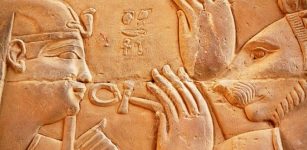Our 7-Day Week Can Be Traced To Babylonians Who Started Using It 4,000 Years Ago
MessageToEagle.com – Why has our week 7 days? The length of our day, month, and year is based on astronomical observations. However, why we have a seven-day week is a little more complicated as there is no proper scientific explanation behind the number of the days.
The history of the seven-day week can be traced to ancient civilizations. Most historians agree the seven-day week dates back to Babylonians who started using it about 4,000 years ago.
The number 7 was sacred to the Babylonians. It was associated with the seven heavenly bodies; the Sun, Moon, Mars, Mercury, Jupiter, Venus and Saturn.
This could also be the reason why marking rituals every seventh-day became important in ancient Babylon.

Interestingly, a seven-day week based on these same celestial bodies was adopted as far away as Japan and ancient China, but ancient Egyptians did not approve of it and had 10 days in their week.
The Babylonians were excellent ancient astronomers and they marked time with lunar months and each lunar month was made up of several different cycles.
See also:
Babylonian Astronomers Used Geometry To Track Jupiter – 1,400 Years Before Europeans
Elusive Planet Mercury As Seen Through The Eyes Of Ancient Astronomers
Gnomon: Ancient Time Measuring Instrument Used By Babylonians, Egyptians And Chinese
Torquetum: Sophisticated Medieval Astronomical Instrument
More Fascinating Ancient History Facts
Many scientists think this is the reason why the Babylonians started using a seven-day week, but there is no solid evidence confirming this is what happened.
The Jews also used a seven-day week and it is possible the Hebrew seven-day week is based on the Babylonian tradition, but unlike other cultures the Hebrews did not use planetary names. They preferred to designate the days by number. The only exception is Saturday, Yom Shabbat which means Sabbath and this marked the day of rest and the last day of the week.

Ancient Romans and Etruscans on the other hand had a eight-day week.
The Christians received the seven-day week from the Jews.
When the Roman emperor Constantine made Christianity the state religion early in the 4th Century CE the seven day week was officially associated with the Julian Calendar and later when it was replaced by the Gregorian Calendar in the 16th Century CE, the 7-day week was still in use.
So, as you can see, the history of the seven-day week is very ancient, but the seven-day weekly cycle has remained unbroken in Christendom, and hence in Western history, for almost two millennia, despite changes to the Coptic, Julian, and Gregorian calendars.
MessageToEagle.com
Expand for references









